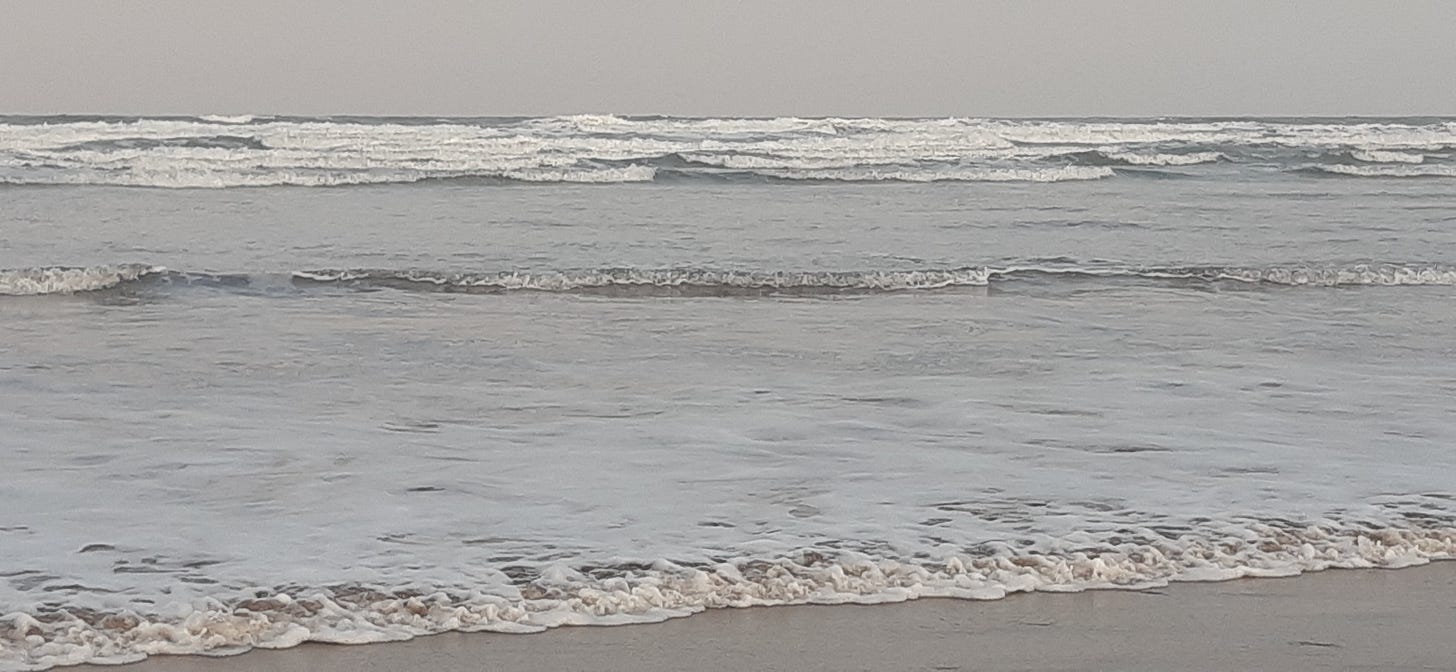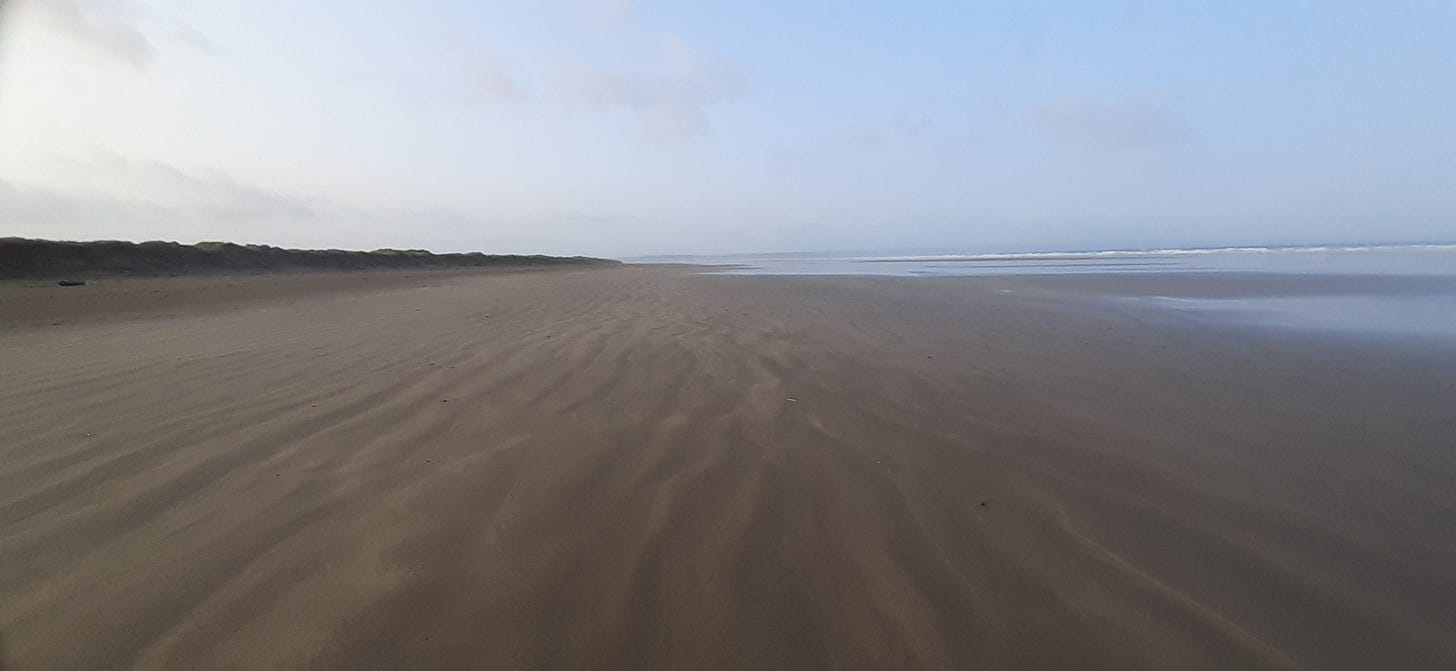Doing more of what matters to you
And less of what doesn't
In my previous article, we looked at how to identify where you have spare hours that you didn’t realise you had.
So now you’ve hopefully identified some extra hours in your week; now let’s see what we can do with them. First, you need to identify what’s important to you. This can be about optimisation – being able to spend more time with your partner, parents or children, or just having more down time.
It can also be a fantastic opportunity to do something more life-changing, like start a business, train for a major sporting event, improving your health or giving that side hustle the attention it deserves.
When the kids were younger and didn’t mind being dropped at school, one of the other Dads on the school run turned up one day in gleaming white trainers and announced to the assembled parents ‘I’M THINKING OF TAKING UP JOGGING!’
He never did, and his trainers remained as pristine as they had emerged from the box.
I want to spend more time gazing at unripe pomegranates from a deckchair
You don’t need me to start telling you to ‘just do the thing’, there’s enough of that on Substack already.
But many of the most ambitious-sounding activities, when taking that whole-week view, actually need less time than you might expect, even though they may seem to be all-encompassing. The problem can sometimes be that there is an almost unlimited amount of time that you could spend, so the trick is to find the amount of time that adds the most value without being a disproportionate burden. For example:
You can train for a marathon in 7 hours per week (three shorter runs, one long run plus strength and mobility work)
Having a quality, low-pressure conversation with your partner or parents every single day, to stay close and help unwind – 7 hours a week
Reading two kids a bedtime story each, every day – 7 hours a week
Starting and maintaining a small business – 10-12 hours a week (no, really)
Cooking quality food from scratch with real ingredients, for the whole week – 5-7 hours a week
Having a walk for half an hour a day – 3.5 hours a week.
Writing – the general consensus is that to make some headway, you need to write at least 1000 words a day. That’s exactly how I got started on Substack. Even allowing for staring out the window and generally over-thinking it, this is entirely achievable in an hour a day (and remember, you don’t have to do it every day as long as you make your target over the course of the week)
So if, as I suspect, you already have 20 free hours a week, and you’re worried about your health and lifestyle, you could take the time to prepare great, real food each day, train for a marathon (or do a couch to 5k if you’re starting out), and have a walk each day, and still have an hour every day to spend quality time with people you care about, or who need your time.
You could start a business and start a writing habit.
Even with just ten hours a week you could learn a language and to play an instrument.
We live in an age where you have access to everything that humanity has ever learned, and there is an increasing expectation that people constantly re-train and improve their skills. Much of that is free.
Developing a new skill can be full-time or as little as a few hours a week. Learn a language, learn to code, learn to write or draw, learn graphic design or joinery. You have the time.
The key thing is that you’re not giving up the things you love to do – you’re just spending an amount of time on them that you’re happy with, and that you’ve made a conscious decision to do.
Paddling is the new posting
As we saw in the last article, this is also not about giving up your TV boxsets, sosh meeds, reading time, gin o’clock or anything else – it’s working out whether you could spend any of that time doing something better (better being based on your judgement, not mine). It’s also about whether you need to do any of those things every single day, or whether you could spend one or two evenings, mornings or part of a weekend doing something different.
The aim here is that you can look back on your week, happy with how you’ve spent it. This is better for your self-esteem, for your mental calm, and to gain a feeling of positive momentum. You are taking control of your life, spending more of your time doing the things that you have decided are the most important, and you’re moving your life in the direction you want it to go, now.
Even if your week ends up looking exactly the same as it did before, and even if it has more down time than annoying productivity bloggers will have you believe is good; consciously designing your week makes it a better week. You’re on the front foot and every activity (or lack of) is something you’ve decided to do.
There is a balance to all of this, and you’ll need to find a sweet spot. If you have already freed up 10 hours by doing less of something, do you now want to trade off another two, or is that a step too far? There’s no right/wrong answer nor judgement – this is your week and it’s about what works for you.
This is an exercise I do every year or so (as my routines don’t move fast enough to need to do it more often than that). I’ve made a number of key discoveries about myself in doing so. One was that I was achieving almost nothing on a Saturday after about 11am; another was that I watched far more TV than I realised (like alcohol consumption and phoning our Mums, we all think we’re doing a slightly better job than we are).
As a result, I’ve learned several languages in recent years. I run about four times a week and have trained for over 20 races and events. I started a small business. I started a writing habit. I play a lot of board games with the family. And I still laze around more than I probably should, but it’s conscious lazing that I feel like I’ve somehow earned.
So where will your breakthroughs be? Can you replace some of your landfill activities with a dream from your bucket list?





